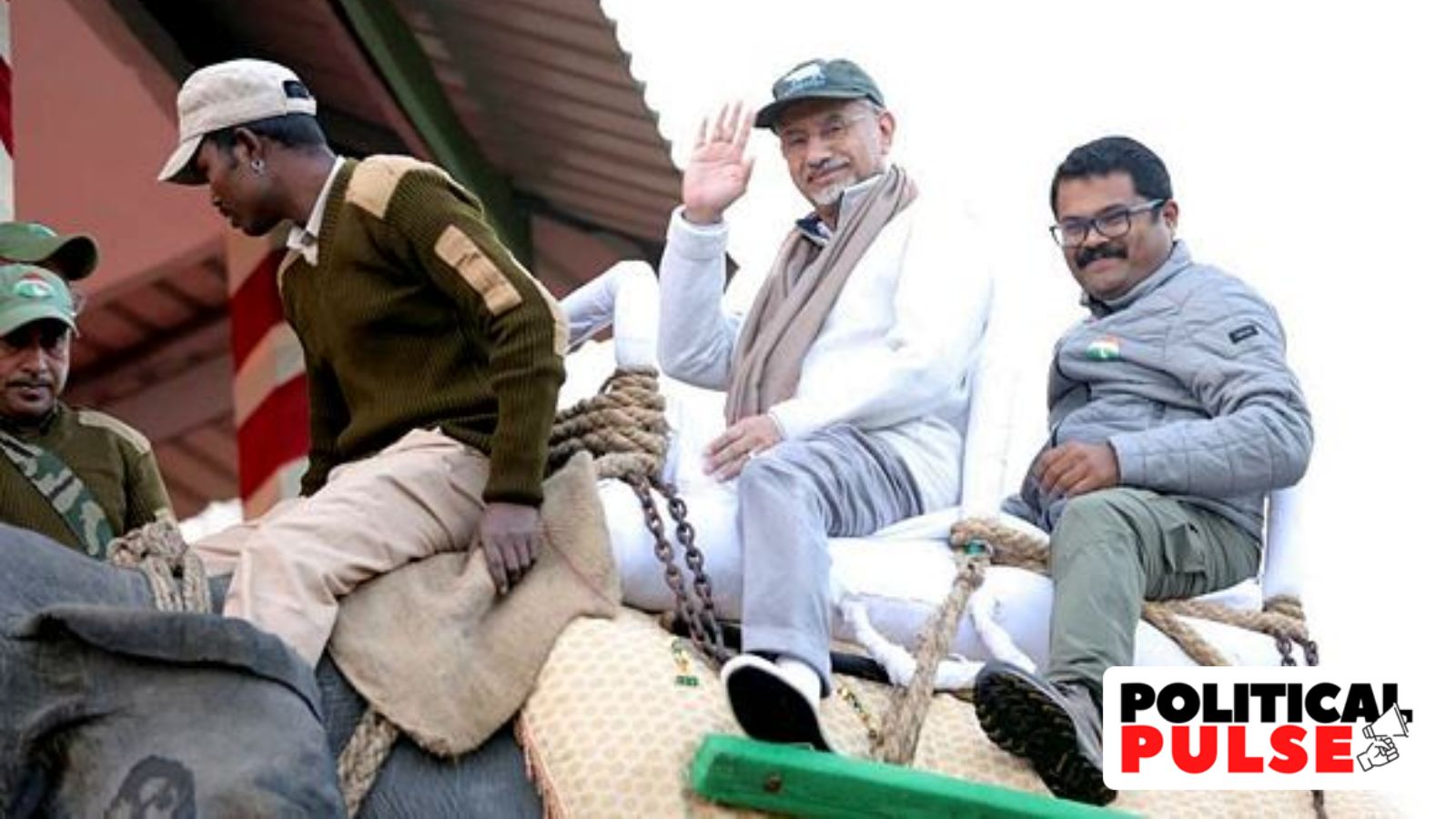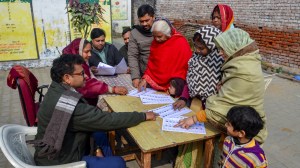Monday was not a regular working day for External Affairs Minister S Jaishankar as he led heads of missions of 61 countries on elephant and jeep safari rides at the Kaziranga National Park. For the group’s elephant safari inside the park’s central range at Kohora, Jaishankar rode the famed tusker Pradyumna.
“I am told that more than three lakh tourists have visited Kaziranga this season. We want Assam and other states of the Northeast to get a more international profile – both for tourism and investment,” Jaishankar said.

Later, Jaishankar and a few envoys were also seen feeding the elephants during the trip, which was timed around the two-day Advantage Assam 2.0 Infrastructure and Investment Summit, which started on Tuesday.
Since the BJP first formed a government in Assam on its own in 2016, there has been a concerted effort to dissociate the state, seen as a gateway to the Northeast, from other states in the region which are seen to pose considerable security threats and seen as “disturbed” by many countries. The region also features in the adverse travel advisory of many countries, especially in the West, cautioning their citizens to take extreme care should they visit these areas.
As per Assam government records, only 26,000 of the seven million tourists who visited the state in 2023 were foreigners.
Speaking with The Indian Express in Kaziranga on the sidelines of the tourism summit last year, Assam Chief Minister Himanta Biswa Sarma said that “global misconceptions” were a huge challenge in his government’s bid to increase the footfall of foreign tourists. He also said he was in touch with embassies of various countries regarding the state featuring in adverse travel advisories.
Sarma also argued that Assam as well as other states in the region had been peaceful over the past five years and it was time to “correct” the advisories. Japan and Australia were actively working to review their advisories, he said.
Story continues below this ad
In the ongoing Advantage Assam 2.0 Infrastructure and Investment Summit, inaugurated by Prime Minister Narendra Modi, Bhutan, Japan, South Korea, Thailand, Malaysia, and Indonesia are participating as partner countries, with The Philippines, Finland, Iceland, Austria also confirmed to attend.
The guests include top industrialists like Mukesh Ambani, Gautam Adani, Anil Agarwal, Prashant Ruia and Sajjan Jindal, apart from representatives of the World Bank, Asian Development Bank and other international funding agencies, and Jaishankar and six other Union ministers.
Ahead of the inauguration, Sarma again talked of how the first thing that investors wanting to come to Assam see is that it is marked as “grey”, over law and security concerns. “If even tourists don’t come to Assam, then the question of investors does not even arise. If today you look at America, Australia, New Zealand, if you see the travel advisories in each of these, Assam, clubbed with other states in the Northeast, has been flagged with a statutory warning that tourists should avoid it,” the CM said.
In a bid to dispel this ahead of the summit, Sarma travelled to and held meetings and roadshows in various states and countries, including Bhutan, Japan, South Korea and Singapore. His ministers travelled to Malaysia, Thailand, UK and the UAE.
Story continues below this ad
The Modi government has earlier too turned to diplomats of other countries to change perceptions regarding an area. When it held the G20 presidency, starting December 2022, Modi had described it as a “unique opportunity” for the country to “showcase its strengths”.
Hence events related to G20 were organised across the country, including a Tourism Working Group convention in Kashmir in May 2023, offering visiting dignitaries an opportunity to witness the Valley post-Article 370 abrogation.
Like the Northeast, Kashmir continues to be designated a no-go zone by many countries, with travel advisories issued from time-to-time for it.
Last year, when Assembly elections were held for the first time in Jammu and Kashmir after the abrogation of Article 370, diplomats were again taken on an escorted visit to J&K – providing yet another opportunity to the government to project “normalcy” in the militancy-hit area.
Story continues below this ad
Before the Lok Sabha elections of 2024, the Ministry of External Affairs organised a delegation comprising several foreign diplomats, including Singapore High Commissioner to India Simon Wong and Nepal’s Ambassador to India Shankar P Sharma, to attend PM Modi’s public meeting in Delhi.
Just a day before visiting Kaziranga, Jaishankar was on another such visit, where over 40 diplomats were taken to the PM’s constituency of Varanasi to witness this year’s edition of ‘Kashi Tamil Sangamam’, an outreach programme by the government to connect southern states to other parts of the country over historial commonalities.
At the Mahakumbh in Prayagraj as well, a special flight carrying diplomats arrived in the first week itself, with the agenda being showcasing the arrangements and the sea of faith that the key event was projected to be. It was also highlighted as the biggest such gathering in the world.

































